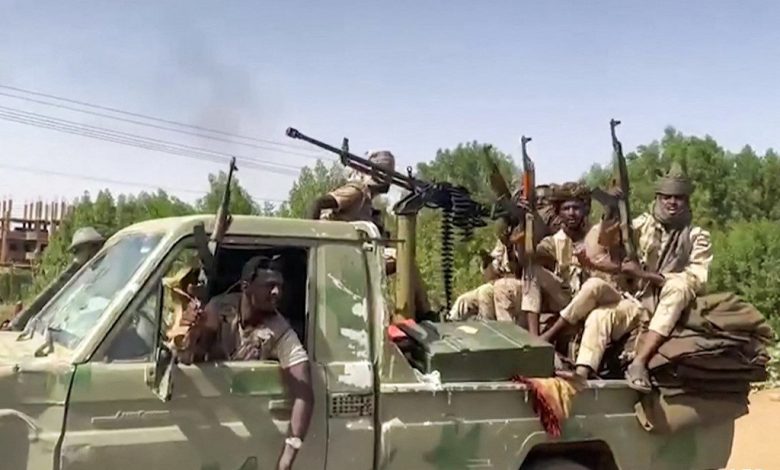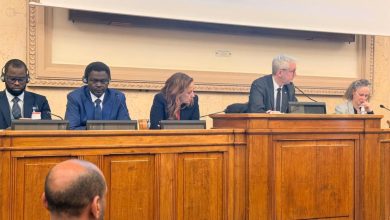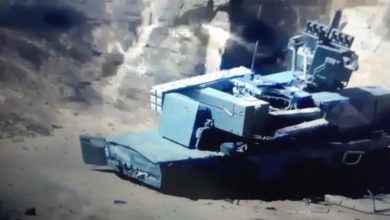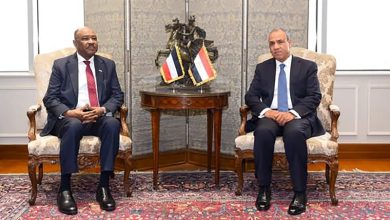Reports
Focus on: El Obeid

Sudan Events – Agencies
Clashes
At midday on Saturday, September 6, Rapid Support Forces (RSF) attacked the city of El Obeid, but were confronted by the Haggana forces, Central Reserve, and security forces. Days earlier, the army began cutting the asphalt road using backhoe excavators to prevent RSF from advancing toward the city. The attacking forces, which had been assembled from Dubeibat and Umm Rawaba, aimed to thwart the army’s mission and seize the excavation equipment. The fighting continued until the evening, affecting some neighborhoods in the south and west of the city, including Al Wahda, Shikan, Al Salam, and Al Tadamun. A shell fell in the Al Salam neighborhood, injuring a child from the flying shrapnel. Reports circulated about the death of some of the attacking forces and one soldier from the army.
The exchange of fire continued into the evening, with artillery shells being fired from within the Fifth Infantry Division headquarters in response to shells launched from RSF positions. The fighting resumed the next morning (Sunday), ending with the army firing three artillery shells.
At that time, it had been 20 days since the last RSF attack on the city, which took place on August 14 and resulted in 21 deaths and 120 injuries, according to the state health minister’s statement on Sudanese radio.
In such circumstances, the dread of awaiting death can weigh as heavily as death itself within a city besieged from all directions, with no one knowing exactly when the next attack will occur. The city has faced over 50 attacks since the first shot was fired, and reliable information about imminent clashes is hard to come by. RSF positions do not distinguish between homes, civilian facilities, and military or security headquarters. Certainly, with each clash or shelling, death will sweep through the city like a black wave.
In the absence of clear information, rumors—often true—prevail. Before the most recent attack, a rumor spread in several social gatherings that the city would be attacked, but no one paid much attention to it. The attack occurred as predicted, in the same manner and from the same direction as had been rumored.
At the same time, official sources in various fields do not provide information even when it is unrelated to security matters. For instance, when a reporter from “Ather” attempted to obtain statistics on the number of injured people admitted to the city’s hospitals, a senior hospital official required him to obtain permission from the Ministry of Health to release the data. Similarly, educational authorities required the same permission from the Ministry of Education to discuss the impact of displaced persons on the academic year.
Economic Siege
The city seems to have escaped danger and become impervious to RSF infiltration thanks to the efforts of security forces, who pursue attacking forces to their positions dozens of kilometers away, occasionally firing mortars to confirm their retreat. However, people visiting the city’s market from peripheral neighborhoods in the morning inform others that the forces driven out the previous day have returned to their original positions to resume their usual activities of collecting levies from citizens with whips.
Observers suggest that RSF forces cannot stray far from the city because they rely on its markets for their supplies. They also obtain money by intercepting traffic on roads leading into and out of the city. Additionally, their presence in residential neighborhoods limits the use of long-range artillery and air strikes against them. While the army has conducted airstrikes on the El Obeid-Bara road, in Umm Sumaymah, and in towns controlled by RSF, particularly Umm Rawaba and Rahad, the RSF’s tactics of entrenching themselves in towns, villages, and communities have forced the army to confront them using infantry, tanks, and medium-range artillery mounted on combat vehicles, resulting in a balance of power and fire intensity between the two sides.
However, RSF’s control of the main roads has choked the city, prompting the creation of new markets in places like Al-Mazroub, Umm Kuraidem, and Al-Nahud, which now supply El Obeid’s market with goods from Al-Daba and Omdurman. These supply routes controlled by RSF cannot be avoided.
A merchant in El Obeid’s market told “Ather” that some drivers attempted to avoid these routes, but RSF informants on the roads and at supply sources discovered their plans, pursued them, and imposed hefty fines amounting to 13 billion pounds per truck, with six trucks in total.
To avoid confrontations, traders reach agreements with tribes living along the routes, such as the Kababish, Buz’a, and Dar Hamid tribes, which RSF avoids clashing with. However, these tribes demand large sums to provide armed escorts. Truck owners also consider their work risky, so they require payment upfront. Renting a truck capable of carrying 1,100 sacks costs 15 billion pounds, plus convoy protection fees that depend on the tribal leaders’ estimates, which can reach 13 billion pounds. Levies collected by RSF checkpoints along the road range from 2 to 3 billion pounds.
A trader told “Ather” that the financial drain does not stop there. Trucks must pay six different duties, including customs, taxes, and levies from various military and local entities when entering the city via Jabal Abu Qur’an. For all these reasons, prices in the city remain unstable.
Double Siege
Amidst these harsh conditions in besieged El Obeid, all citizens suffer, but displaced women in schools and shelters endure a double siege. Many of these women fled to the city from surrounding villages following tribal conflicts reignited by the April war. Women from the Al-Birka area have fled to El Obeid in their hundreds, finding refuge in its schools. Some have been relocated to the central camp near the bus station since the start of the academic year and the reopening of schools.
Displaced women told “Ather” that their situation deteriorated after being forced to move to the central camp, where they are isolated and no longer able to interact with the local population or engage in small trade to improve their livelihood. Recently, an emergency committee was formed by the state government and the Displaced Persons Commission to address the rainy season’s disasters, epidemics, and improve conditions for the displaced. However, there are only promises so far from several organizations, and aid remains undelivered due to road closures and ongoing security instability. Still, the displaced women hold out hope for open roads and easier access to food and aid supplies.
At Al-Rahma School, located north of El Obeid, Howa looks forward with hope and optimism despite losing her pregnancy due to severe health complications. She suffered from anemia and hunger and had to borrow money to pay the hospital’s delivery fees. Howa lost another child while fleeing violence in Al-Birka and scaling fences to escape death. Now, she is trying to manage with a small donation of peanuts from a benefactor, selling them in small bags.
Howa shares her space with Zahra, who also resides in the same school. Zahra left two family members behind in Al-Birka: one is disabled, and the other was shot, but she could not bring them along. She now works cleaning houses to support her younger child while her older son polishes shoes.
“Water is not available; we either buy it or carry it on our heads from far distances,” Zahra tells “Ather.”
Mariam Saleh lives with her two-year-old child in “Karank” at School 3, where aid organizations distributed tents inside the school grounds. Unlike other displaced women, she didn’t have to leave the classrooms. Her husband left to prospect for gold, and she hasn’t heard from him in a long time. Her large family was scattered by the hardships of living in schools, so they set up tents in a remote part of El Obeid. They only return when word spreads of aid distribution at the schools, which has completely stopped since last Ramadan.
Mariam contracted conjunctivitis, which has spread widely among the displaced, and she recovered after receiving free treatment from the Red Crescent. She and her family now survive by selling peanuts, while the men engage in informal jobs after abandoning farming due to the war and losing their livestock.
Despite the harsh living conditions and lack of essential needs, the displaced families in School 3 maintain a cooperative spirit. They face the spread of diseases, particularly during the rainy season, and need mosquito nets to prevent mosquitoes as well as humanitarian aid.
The displaced children at School 3 receive no education. One organization promised to provide special education in designated classrooms from 10 AM to 3 PM, but after distributing test results, they disappeared and have not returned since, Mariam told “Ather.”
Mariam and others like her in El Obeid endure the siege, understanding the hardships faced by the city’s residents: “At first, the people of the neighborhood welcomed us and provided daily meals for weeks, but this gradually stopped due to the skyrocketing prices under the siege.



